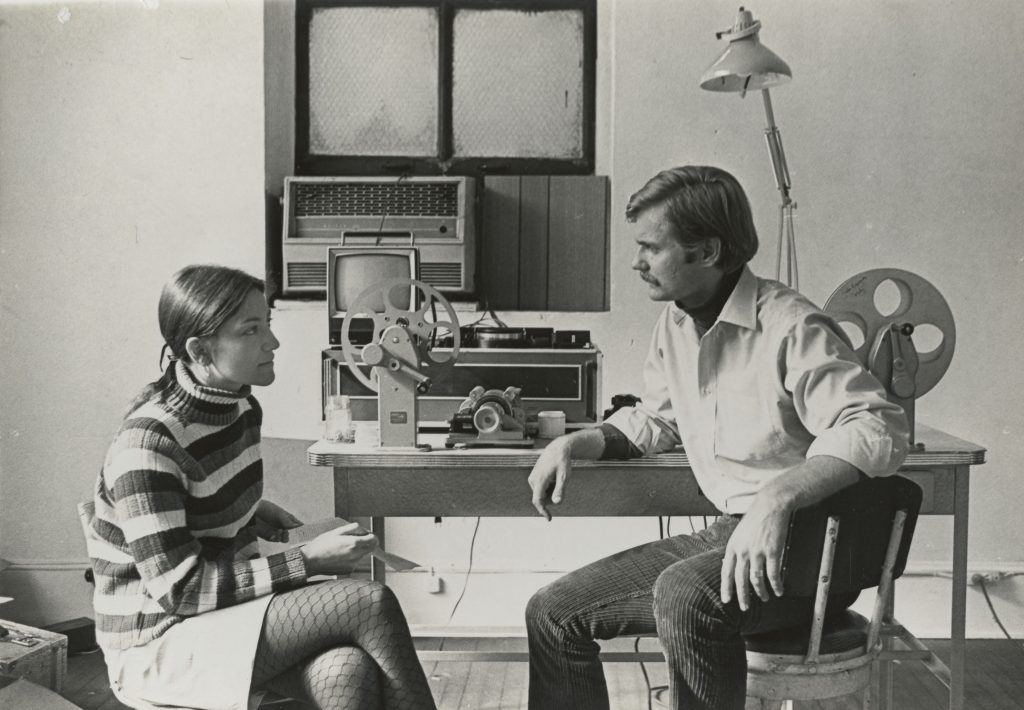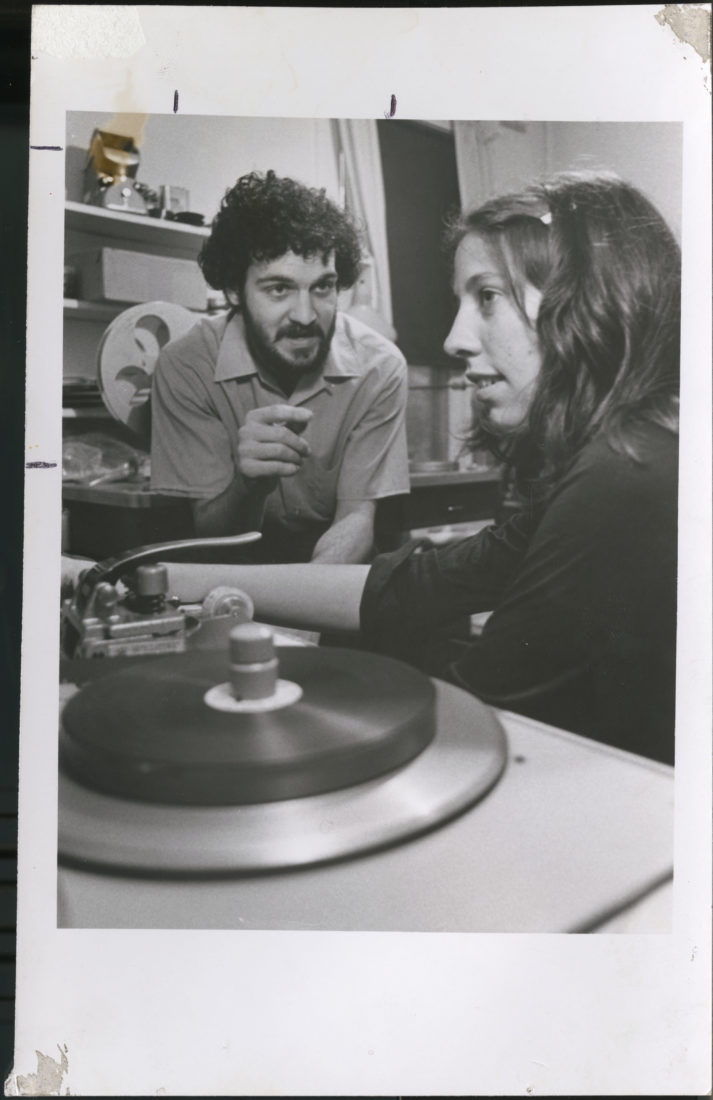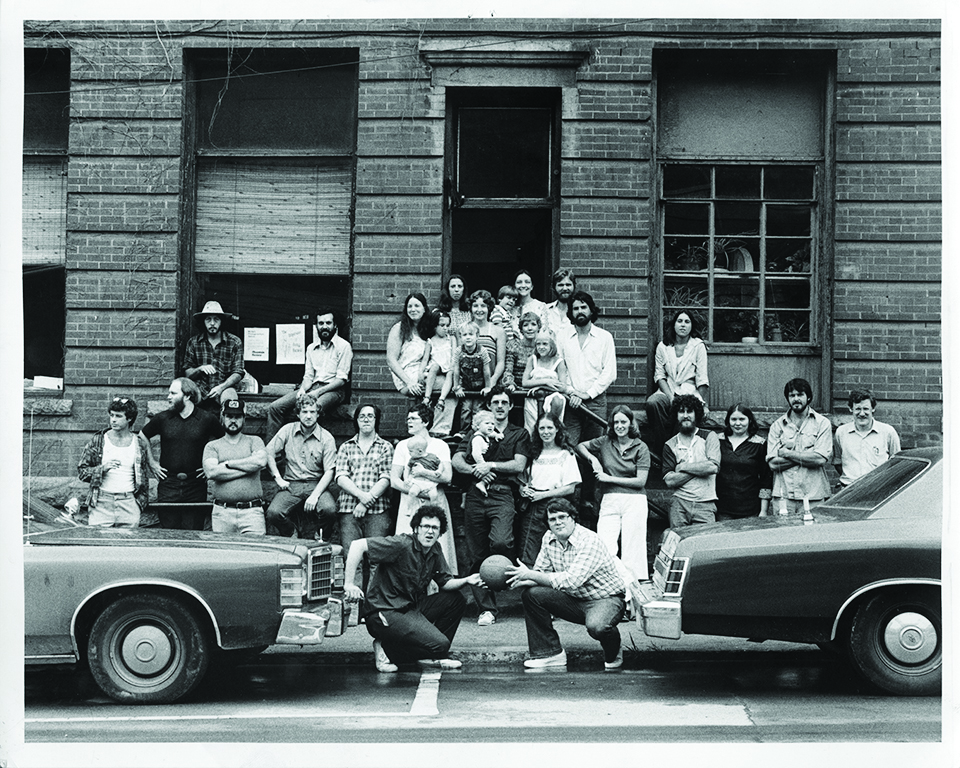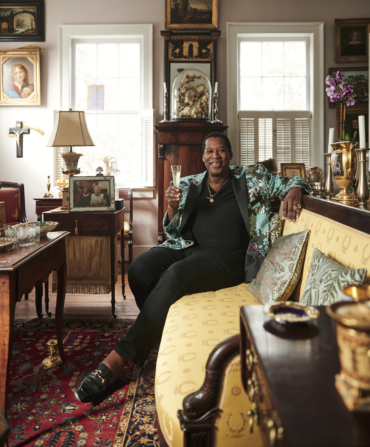Following President Lyndon Johnson’s War on Poverty, in 1969 the federal Office of Economic Opportunity issued grants to establish arts programs in low-income neighborhoods throughout the country: places like inner-city Atlanta and Chicago. And Whitesburg, Kentucky. “At first, it was literally just about how to get film technology into the homes of people who may not have had resources, then teaching them skills to help them get jobs,” says Ada Smith, the institutional development director at Appalshop, the non-profit arts organization that grew from the initial program.
The introduction of video equipment ignited creativity in Whitesburg, allowing residents to project their own narratives to the world through the eight films Appalshop produced the first year. “[People’s perceptions of Appalachia] were informed by all this stuff that was negative about the region. It was Deliverance, Hee Haw, Beverly Hillbillies,” says Elizabeth Barret, a filmmaker from nearby Hazard, Kentucky, who joined Appalshop in 1973. Smith agrees: “Rarely have people living in this place gotten to be the architects of our own future,” she says. “Appalshop amplifies the voices here.”

Bill and Josephine Richardson, who helped establish Appalshop in Whitesburg in 1969.
Over the last fifty years, the organization has evolved, expanding its filmmaking—more than 100 documentaries have been made by and about the Appalachian coal miners, quilters, beekeepers, preachers, and artists—and encompassing theater productions, a literary magazine, a twenty-four-hour radio station, a recording studio, historic archives, and health, education, and outreach programs benefitting thousands of people in the region and beyond.

Appalshop filmmakers Herb Smith and Elizabeth Barret in 1974.
“We felt like it was our job to stay and make a go of it in this place,” says Herb Smith, a filmmaker and Whitesburg native who was among the first Appalshop trainees in 1969. “People left, all around here, by the thousands, the tens of thousands. We felt like the way you deal with it is by creating the alternative.”
This weekend, Appalshop kicks off its fiftieth anniversary with a reunion of original members, screenings of some of the earliest films, and an open house to show off recent projects including works from a 3D printing course. Festivities throughout the next year include the release of a new album by the Local Honeys and the premiere of Portraits and Dreams Revisited, a documentary catching up with the one-room schoolhouse elementary students captured in acclaimed photographer Wendy Ewald’s work in the early 1970s.
Appalshop filmmaker Anne Lewis filming miners in 1986.
1 of 9
Bill Richardson works on his film Appalachian Genesis in 1971.
2 of 9
Elizabeth Barret at work on her film Long Journey Home in 1987.
3 of 9
Filmmaker Scott Faulkner shooting Sunny Side of Life, 1985.
4 of 9
A still from Quilting Women, a 1982 film by Elizabeth Barret.
5 of 9
Appalshop filmmaker Mimi Pickering in the early 1990s.
6 of 9
Filmmaker Herb E. Smith sitting for an interview in Appalshop’s theater in Whitesburg in 2017.
7 of 9
Appalshop’s Appalachian Media Institute for young people films on Pine Mountain, Kentucky, in 2017.
8 of 9
Appalshop’s building in downtown Whitesburg was purchased in 1979.
9 of 9
“Coal is no longer the backbone of this region, so we have to think creatively to figure out how to reshape the economy,” Smith says. “We now have a new generation carrying this forward, looking at the question of what the future is like for communities like ours and how art plays a role.”

















